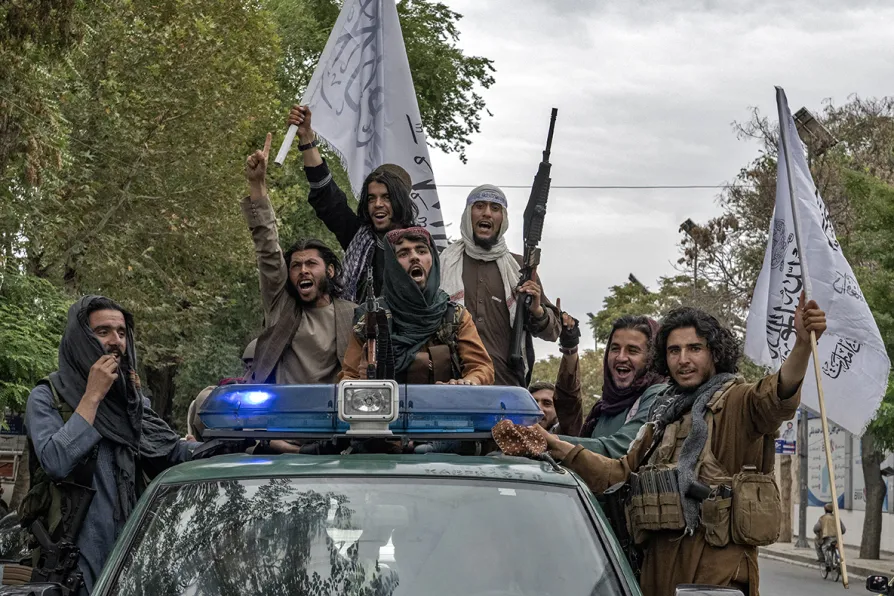CHRISTOPHE DOMEC speaks to CHRIS SMALLS, who helped set up the Amazon Labor Union, on how weak leadership debilitates union activism and dilutes their purpose

 Taliban fighters celebrate one year since they seized the Afghan capital, Kabul, in front of the U. Embassy in Kabul, Afghanistan, Monday, August 15, 2022
Taliban fighters celebrate one year since they seized the Afghan capital, Kabul, in front of the U. Embassy in Kabul, Afghanistan, Monday, August 15, 2022
EMPIRES advance and empires retreat, though not in circumstances of their own choosing — to borrow from one Karl Marx — and certainly never smoothly or without upending entire regions, countries and societies in their wake.
With this in mind, what unfolded in Afghanistan a year ago with the panicked withdrawal of US forces to end Washington and its allies’ 20-year occupation of the country was a historic tipping point, a significant signpost pointing to US hegemonic and imperial decline.
In this respect, the chaotic and panicked scenes at Kabul airport, where US and British military forces hastily attempted to effect the evacuation of their own nationals still in the country, along with those Afghans who worked with them during the country’s occupation, drew comparison with Saigon in 1975. They did so with good reason.

ROGER McKENZIE looks at the gradual demise of US’s nefarious influence around the world and the complexity of impending freedom

RON JACOBS salutes a magnificent narrative that demonstrates how the war replaced European colonialism with US imperialism and Soviet power











